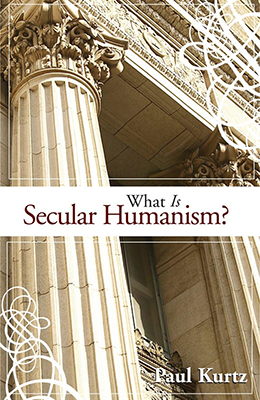What Is Secular Humanism?
“Secular Humanism” is a book by Paul Kurtz, a prominent philosopher and advocate for secular humanism. Published in 2000, the book serves as an authoritative overview of the principles, values, and philosophy of secular humanism.
In “Secular Humanism,” Kurtz defines secular humanism as a philosophy and worldview that emphasizes reason, ethics, and humanism in guiding human affairs, rather than reliance on religious or supernatural beliefs. He explains how secular humanists reject the idea of a divine or supernatural authority and instead look to science, reason, and human experience as the basis for understanding the world and making ethical decisions.
Kurtz explores the ethical framework of secular humanism, which is grounded in principles of empathy, compassion, and social justice. He argues that ethical behavior arises from human nature and social cooperation, rather than divine commandments or religious doctrines. Secular humanists advocate for ethical behavior based on reason, empathy, and the well-being of individuals and society as a whole.
Throughout the book, Kurtz addresses common misconceptions and criticisms of secular humanism, such as the idea that it promotes moral relativism or nihilism. He argues that secular humanism offers a robust moral framework that is grounded in reason and empathy, providing a solid foundation for ethical decision-making and social progress.
In addition to discussing the philosophical underpinnings of secular humanism, Kurtz explores its practical implications for issues such as education, politics, and social policy. He advocates for the separation of church and state, the promotion of science education, and the protection of individual rights and freedoms.
Overall, “Secular Humanism” is a comprehensive and authoritative exploration of the secular humanist worldview. Kurtz’s clear and engaging writing style, combined with his depth of knowledge and expertise in philosophy, make this book accessible to readers of all backgrounds and provide a compelling case for the importance of reason, ethics, and humanism in shaping a better world.

